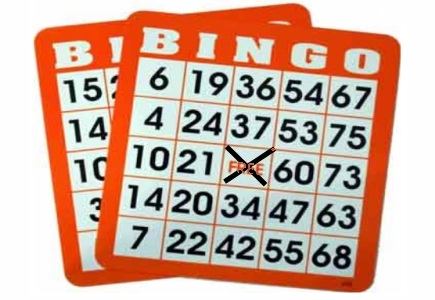
“I don't know anybody who can afford (to run) bingo (operations),” said Gene McVay, former commander of the American Legion Post 31 in Fort Smith.
McVay said left his operations for charitable bingo because the state tax on bingo cards cut into funds that were used on scholarships programs and other charitable causes.
In 2007, DF&A created $600,000 budget for employing a division to monitor bingo operations in Arkansas. A 1-cent per tax on each bingo game card was put into effect as a result.
The taxation amassed a $1.1 million the first year, and bingo operators from across the state, during hearings at the state Capitol, voiced their concerns.
The bingo operators argued that the tax was cutting into their proceeds and bingo games could be monitored on a local level, eliminating a state wide monitoring. During that hearing the tax was reduced from what one cent to .3 but hasn't seemed to ease the current problem.
John Theis, deputy commissioner for policy and legal at DF&A, said the .3 cent sales tax generated about $234,000 in 2010-2011 and about $208,000 during the first nine months of the current fiscal year.
“After the initial set up of bingo, we went out and met with every bingo operator, then we audited or investigated every bingo operation to make sure they were up and running and operating within the rules,” Theis said. “Then after the initial contact … the work load switched, so they do bingo-related investigations and other activities within the miscellaneous tax section, as well.”
Theis said DF&A auditors have been told by a number of small charitable bingo operators and they could not meet the rules and regulations created to regulate bingo, specifically one requiring the games only be run by volunteers.
“The law requires that you do it with volunteer labor and that requires a significant commitment,” he said. “Folks got really excited when bingo became legal but after they did it month after month their interest waned … they had trouble sometimes finding folks who would work.”
Rep. Tracy Pennartz, D-Fort Smith, who sponsored the bill that reduced the tax on individual bingo cards in 2009, said last week she would prefer that the tax be reduced further or eliminated altogether.
“Certainly I think it is something we need to look at,” said Pennartz, who is term limited and seeking a Senate seat. “I think this is one of the things we need to look at because the amount of money generated by the tax is really in the big scheme of things minimal. I think that is money that would be better spent on our communities by those charitable organizations.”
Your feedback
Please enter your comment.
Your comment is added.





